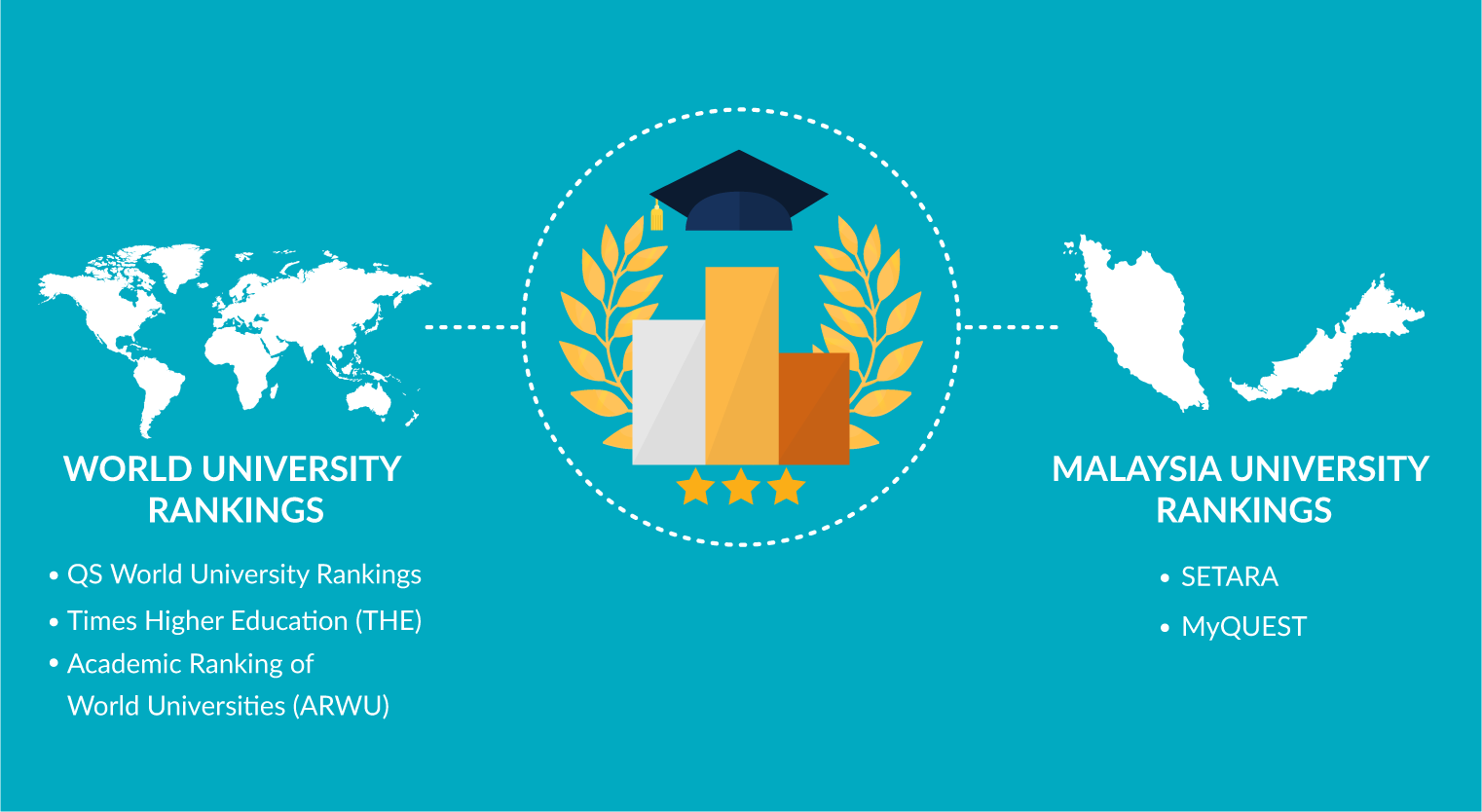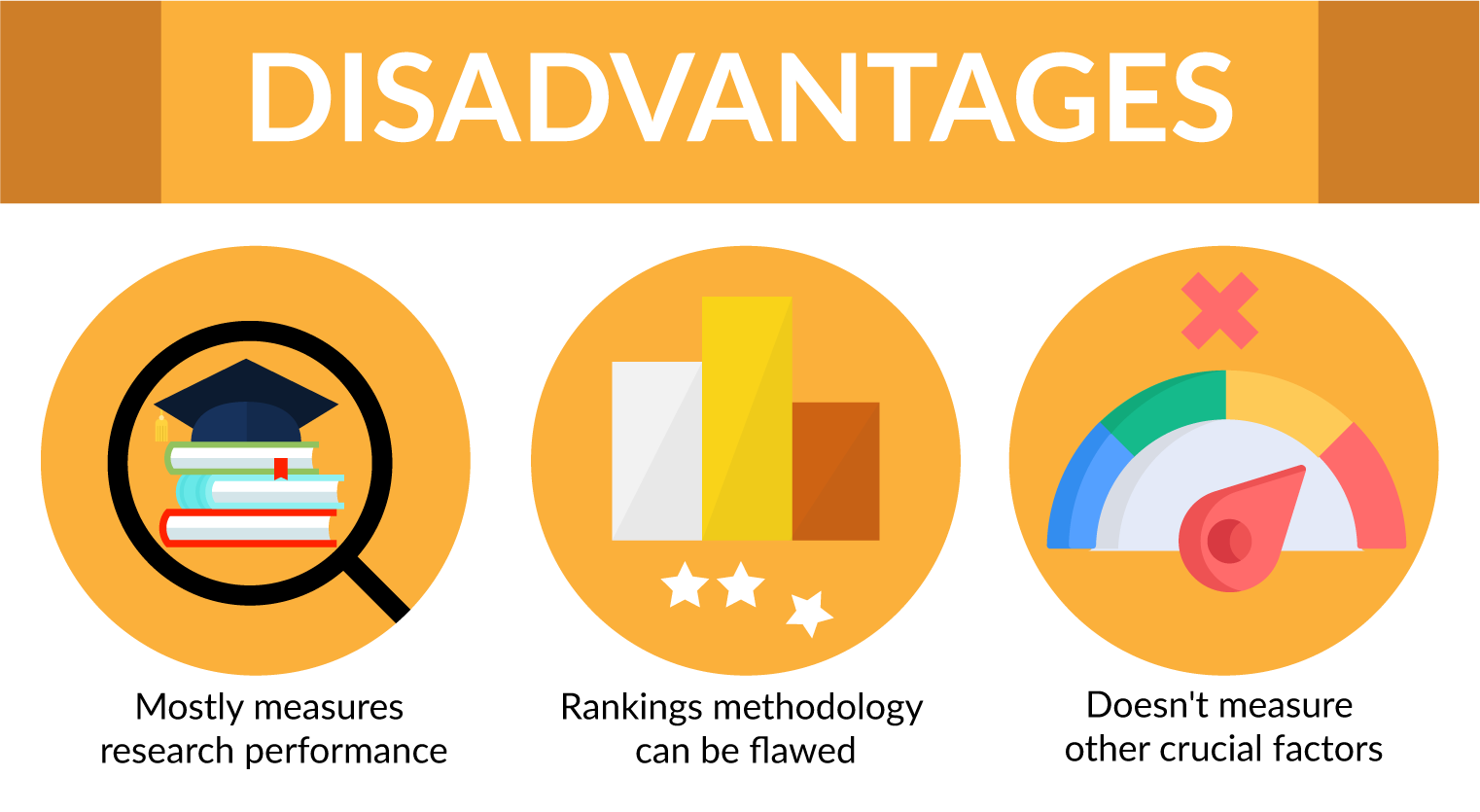What Are University Rankings and Do They Matter?
Are university rankings confusing you? Find out how university rankings work and if they actually matter here.
Updated 17 Oct 2024

If you’re on a quest to enrol in the best university, more often than not, you’ll end up comparing institutions based on university rankings. But how do you decide which ranking to use as a reference? And does it really matter if you attend a university that’s ranked #70 or #80?
Let’s discuss!
What are university rankings?

Once upon a time, simply being accepted into any university called for a big celebration. However, today’s world has become saturated with a plethora of universities to choose from, making it hard for you to come to a firm decision.
Hence, the birth of university rankings; to help you select the best education institution by ranking each of them based on several pre-determined factors, such as research excellence, teaching quality and graduate employability.
There are many university rankings but not all university rankings use the same factors, resulting in some universities performing better in some and poorly in others. For instance, in 2019, Universiti Malaya is ranked #87 in QS and #301–350 in Times Higher Education.

Types of university rankings
World university rankings
The most popular world university rankings are the QS World University Rankings, Times Higher Education (THE) and Academic Ranking of World Universities (ARWU). Each of them has different assessment criteria when ranking universities.
The QS World University Rankings, published by Quacquarelli Symonds, uses metrics such as academic reputation, citations per faculty (to measure research quality) and faculty/student ratio (to measure teaching quality).
The Times Higher Education (THE) World University Rankings, published by Times Higher Education (THE) magazine, measures teaching quality, research volume, and research influence, with a high emphasis on the number of research citations.
Finally, Academic Ranking of World Universities (ARWU), published by Shanghai Jiao Tong University, looks at universities based on research output, quality of faculty and quality of education.
Malaysian university rankings
In Malaysia, there are 2 prominent university ratings developed by the Ministry of Higher Education (MOHE) — Rating System for Malaysian Higher Education Institutions (SETARA) and the Malaysian Quality Evaluation System for Private Colleges (MyQUEST).
SETARA is a rating system for Malaysian universities and evaluates them based on 4 criteria — general reputation, teaching, research and income generation from idea commercialisation. Prior to 2022, universities were rated from 1 to 6 stars, with 6 being the highest accolade.
However, in 2022, MOHE introduced a new rating system, simplifying the categories due to the impact of the COVID-19 pandemic on higher education institutions. The universities are now classified into 2 tiers.
- Berdaya Saing (Competitive): Excellent and has fulfilled all the criteria under the Malaysian Higher Education Institution Rating. These institutions are capable of competing at a higher level.
- Berdaya Maju (Viable): Good and have met the minimum criteria set. These institutions have the capability to progress and move towards a higher level.
MyQUEST, on the other hand, is used to gauge the quality of private colleges by assessing them based on their resources, quality management systems and graduate recognition. Similar to SETARA, private colleges are now classified using the same Berdaya Saing and Berdaya Maju categories.
Apply for university with EduAdvisor
Secure scholarships and more when you apply to any of our 100+ partner universities.
Start nowShould You Care About University Rankings?
Advantages of university rankings
Let’s say you’re looking for quality fish and chips made with organic ingredients, but you have no idea where to look. If you were given a list of the best fish and chips restaurants in your area, would you use it? Most likely, you would.
Well, the same goes for picking a university. As universities are evaluated based on several indicators, university rankings can help you decide which institution is the best option for you, simply based on its relevance.
These rankings can also be used as an early shortlisting tool. If you are looking for the best university for a specific subject, university rankings can narrow down the list and simplify the decision-making process. When comparing lesser-known universities, students can also refer to rankings as a quick reputation check to gauge its standing.
On top of that, university rankings are a great help to students who are looking to study overseas but have no idea which institutions are reputable.
PRO TIP
Rankings can be a good way to shortlist universities but the difference between a university that’s ranked #50 versus one that’s ranked #55 is marginal, so don’t take it too seriously.

Disadvantages of university rankings
One of the downsides of university rankings is their excessive emphasis on research performance. This is useful if you’re looking to pursue academia; not so much if you’re looking at a degree as a means to getting a job. After all, if you’re learning about media writing and principles of marketing, is it really important that your professor has a Ph.D and is performing groundbreaking research?
In addition, the methodology used to compile rankings can be flawed. For instance, some rankings use reputation surveys as an indicator of academic excellence. This can create a bias towards more popular and traditional universities, making it hard for newer universities to rise up the ranks.
More importantly, university rankings do not measure other crucial and more subtle factors beyond the classroom, such as campus environment and diversity, the emotional support offered and connecting with people who you share passions with. These qualitative elements can positively impact your study experience and are hard to measure.
How can you use university rankings to your advantage?

So, should you still refer to university rankings to help you make a decision?
Although university rankings may not be all that reliable, you can still put this information to good use. As each ranking uses different assessment criteria, this means that some rankings may be more useful to you than others. Use this to your advantage by referring to rankings that measure factors that are important to you (e.g. subject ranking, graduate employability). Be sure to check out different university rankings to get an insight into different indicators.
At the same time, it’s wise not to make a decision based solely on university rankings. While they are useful as a shortlisting tool, they rarely tell the whole picture.
Ultimately, there is no ‘best university’ as the term ‘best’ is personal and subjective. What may be best for someone may not be the best for you since they may be focusing on different criteria. Instead, prioritise what you think makes a good university experience.
PRO TIP
Need help to look for a university that meets your needs? Feel free to speak to our education advisor today!
Now that you’re aware of the intricacies and uses of university rankings, we hope that you can make a more informed decision when choosing where to study. Good luck!









